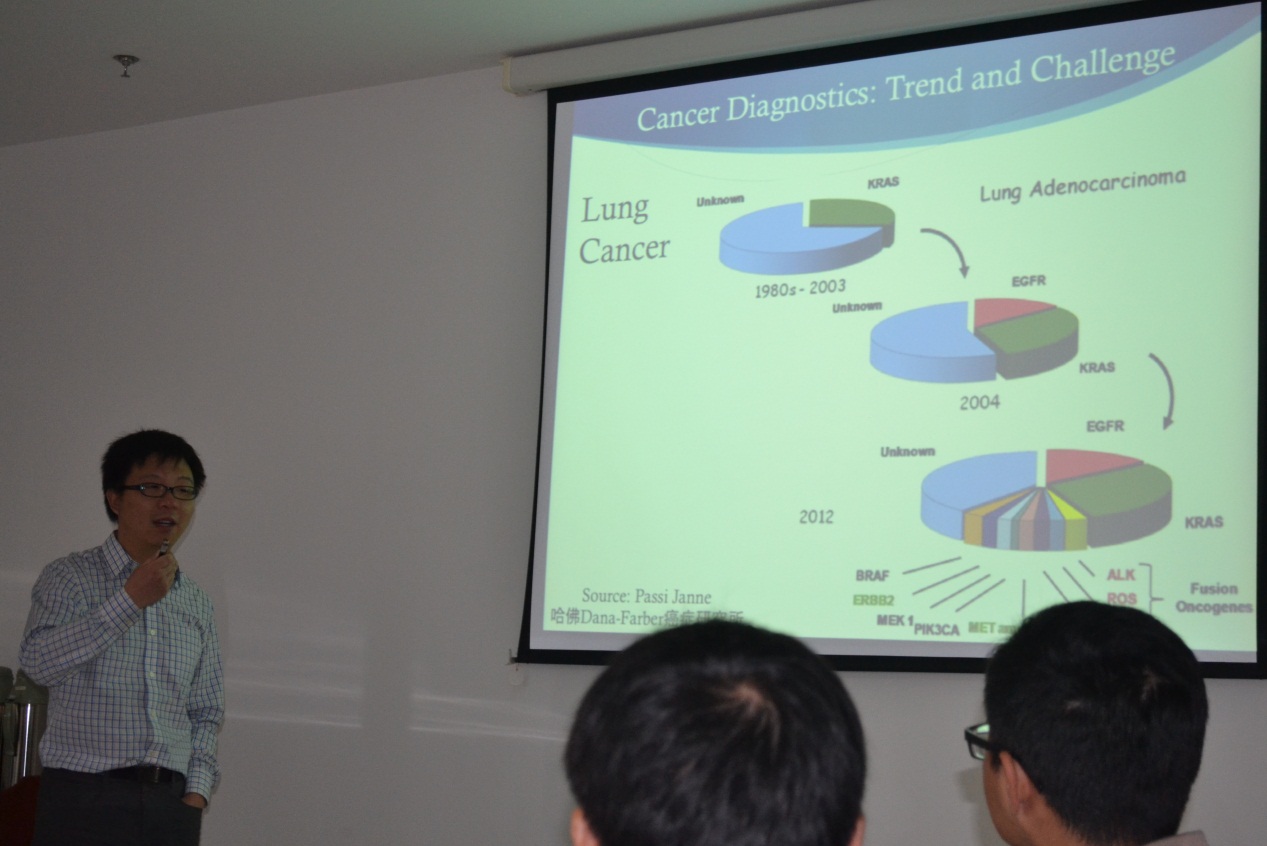On 25 Aug, Dr. Chen gave a lecture on Next-generation Cancer Diagnostics Enabled By Advanced Molecular Programmingin Suzhou Institute of Biomedical Engineering and Technology (SIBET).
Dr. Xi Chen is currently a postdoctoral fellow in the Molecular Systems Lab (Lab of Peng Yin) at the Wyss Institute of Biologically Inspired Engineering at Harvard University. He is also a co-founder of Entropia Biosciences, a biotech start-up with the mission of improving diagnostics with innovative molecular engineering. Prior to joining Wyss, Dr. Chen received his PhD training in the University of Texas at Austin under Andrew D. Ellington, co-inventor of the aptamer technology and a thought-leader in aptamer-based therapeutics and diagnostics. Dr. Chen has been awarded the Jane Coffin Childs Postdoctoral Fellowship, one of the most prestigious postdoc fellowships in the world for biomedical research, regarding his study on nucleic acid circuitry on cancer diagnostics and therapeutics. He is a lead or senior author of more than 15 research articles including ones in leading journals such as Nature Chemistry (cover story) and PNAS.
In the talk, Dr. Chen introduced the current issues, technologies and approaches in this research area. He said: as drug-based cancer therapy evolved from cytotoxic chemotherapy to targeted therapy, the focus for cancer diagnostics also shifted from histological observations to molecular and mechanistic insights. Unfortunately, targeted therapy cannot completely cure cancer and relapse invariably occurs where the cancer is resistant to the initial therapy. To guide effective second-line therapy after resistance occurs one must understand the resistance mechanism. Circulating tumor biomarkers such as circulating tumor DNA (ctDNA) and circulating tumor cell (CTC) provide a unique window to obtain such information. However, currently used methods to analyze these biomarkers are inadequate either scientifically or practically. For example, immunostaining-based CTC analysis lacks sufficient the resolution and level of multiplexing. Meanwhile, prominent ctDNA analysis methods such as digital PCR and NextGen sequencing are not practical for clinical adoption due to factors such as patient coverage, error rate, protocol complexity and cost. Here we introduce two methods, both developed in the Molecular Systems Lab (Lab of Peng Yin), that can help address these challenges. First, DNA-PAINT allows for super-resolution, multiplexed imaging of cellular samples. Second, the concept of Toehold Probe enables highly specific and robust DNA hybridization. Application of these technologies in next-generation cancer diagnostics will be discussed.
